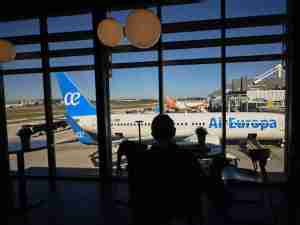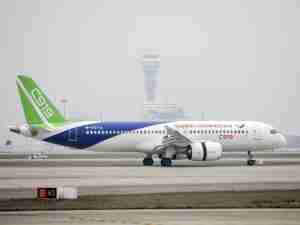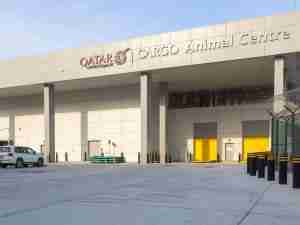Mario Draghi’s attempt to end one of Italy’s longest-running corporate sagas has turned into a political hot potato with less than a month to go before the country’s general elections.
Right-wing leader Giorgia Meloni, the front runner to succeed Draghi as prime minister according to the latest polls, slammed the government’s decision to start exclusive talks with a group of international investors to sell the fledgling state carrier ITA Airways. The center-left and a centrist grouping defended the move while the populist Five Star Movement sided with Meloni in casting doubts over the sale.
“We had to consider keeping the flag carrier in our hands, it doesn’t look good if we are the only major Western country without one,” Meloni said at a campaign rally late on Wednesday. “It’s another piece of Italy that goes away; I’ll do all I can to prevent this.”
That leaves the investor group, which includes Air France-KLM, Delta Air Lines Inc. and investment fund Certares, starting talks without knowing whether ITA, created in 2020 as a successor to bankrupt carrier Alitalia, will still be up for sale by the time negotiations are concluded.
It wouldn’t be the first time that political intervention has put the brakes on the sale of Italy’s beleaguered airline. In 2008, in the run-up to another snap election, Silvio Berlusconi campaigned to keep Alitalia in “Italian hands” and Air France withdrew its offer. Since then, Italy has spent at least at least 5.4 billion euros ($5.4 billion) to keep the airline flying.
Meloni’s opposition comes even after the winning group sought to provide Italy with some assurances. It structured its bid giving the state a significant minority shareholding. The state would vote on any extraordinary operations like the merger or the sale of a business unit. The role of the Rome’s Fiumicino hub would be guaranteed and expanded.
The sale would also bring in between 600 million euros and 650 million euros for ITA, according to Il Messaggero newspaper. Leaving it in public hands would mean the loss-making airline will continue to weigh on state finances, with a capital injection of some 400 million euros scheduled for the autumn.
“ITA is anything but a profitable asset for Italy, it weighs on taxpayers and lost half a billion euros in the first eight months of the year,” said Guglielmo Barone, a professor of economics at Bologna university. “This self-described defense of Italianness by the potential future government isn’t good for the economy.”
It’s Draghi’s decision to go ahead with the sale process even after his government resigned -- leaving it in charge only of current affairs -- that seems to have irked politicians.
“I don’t understand why the Italian government deliberately chose to move forward without waiting for the next government,” Meloni said.
The exclusive talks initiated Wednesday may go on well beyond the Sept. 25 vote. The finance ministry said a binding agreement will follow “only if the outcome will be fully satisfactory for the public shareholder.”
While the process may progress faster, any deal signed before the new government is in place -- most likely between late October and early November -- will likely be challenged in court.
“We’ll raise the issue at the Constitutional Court,” Fabio Rampelli, a senior lawmaker for Meloni’s Brothers of Italy party, told the Verita’&Affari newspaper. “This issue has taken on an unwarranted urgency.”











